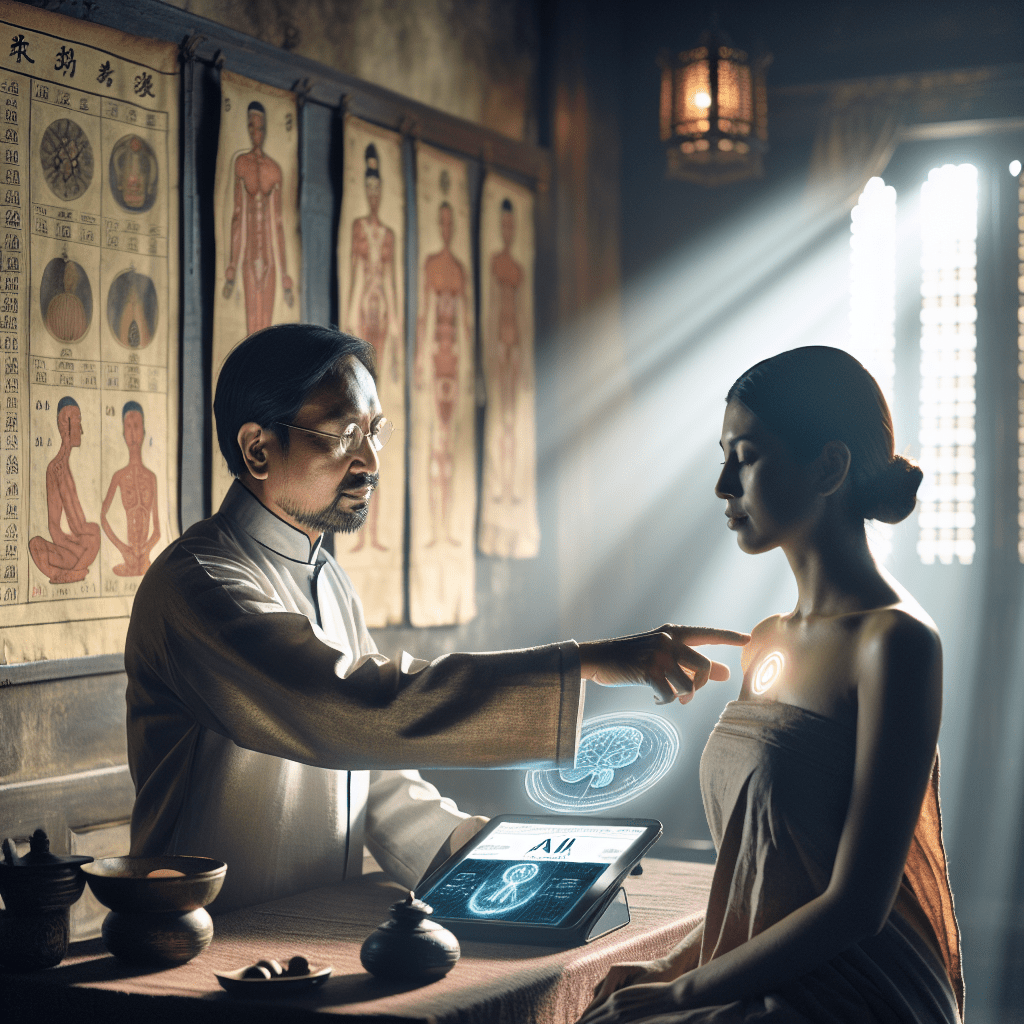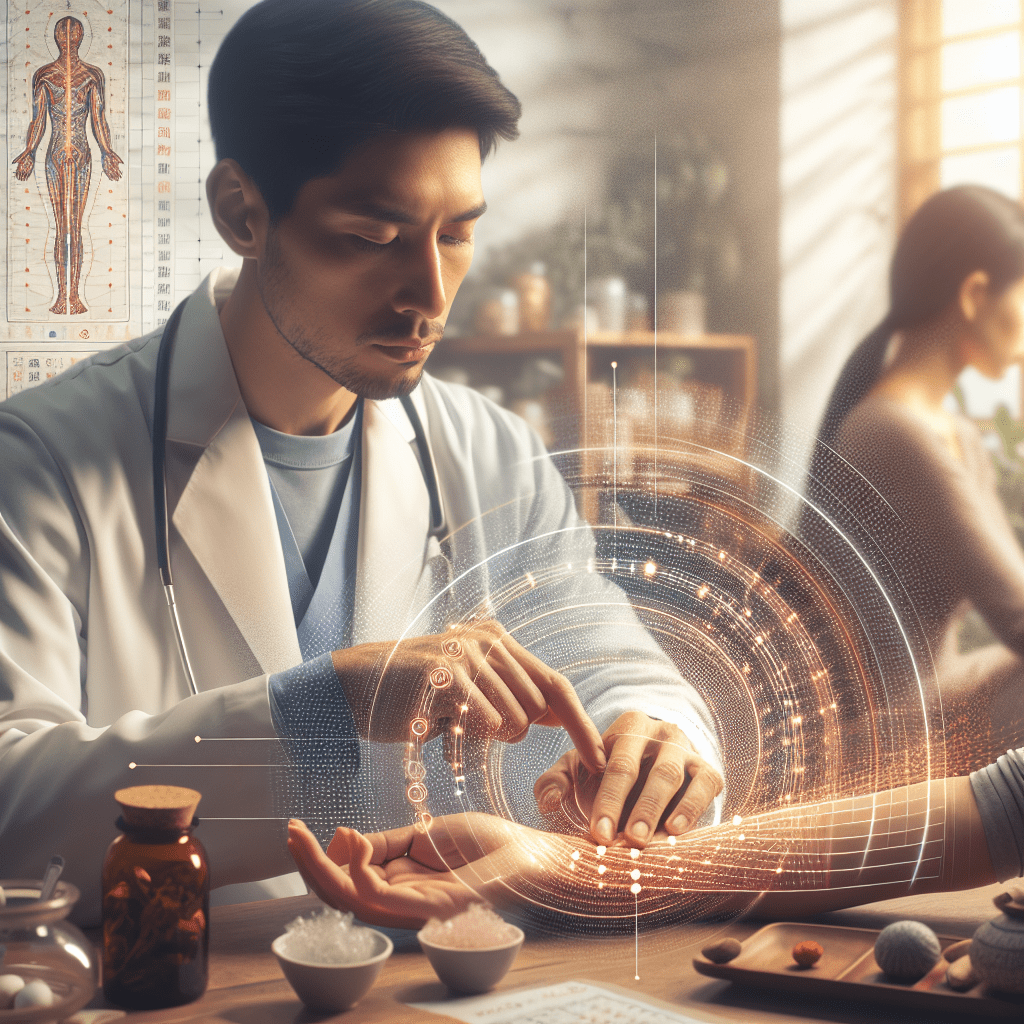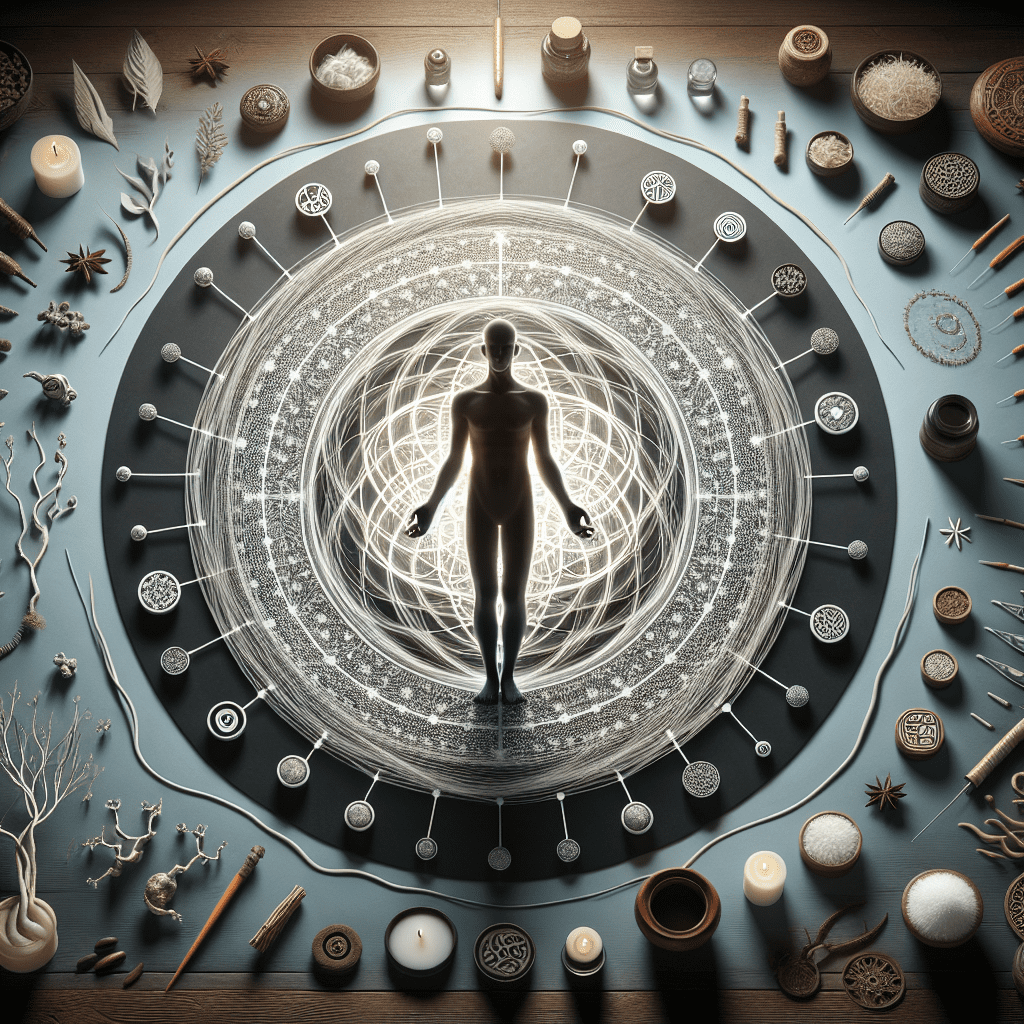Have you ever wondered how the wisdom of ancient healing practices could meet the cutting-edge technology of today? That fascinating intersection is happening right now with Traditional Chinese Medicine (TCM) and artificial intelligence. This isn’t just about old meeting new—it’s about creating something revolutionary for your health journey.
The Time-Honored Wisdom of Traditional Chinese Medicine
Traditional Chinese Medicine has been nurturing human health for over 2,000 years. Unlike Western medicine’s focus on treating specific symptoms, TCM embraces a holistic approach that considers the entire person—mind, body, and their environment. It’s all about achieving harmony and balance within yourself and with the world around you.
In recent years, TCM has captured the attention of health enthusiasts worldwide. People are increasingly drawn to its natural therapies, from acupuncture to herbal remedies, as they seek alternatives to conventional medicine. The appeal lies in TCM’s gentle yet effective approach to wellness that treats the root causes rather than just masking symptoms.
“TCM views health as a delicate balance,” explains Dr. Lin Wei, a TCM practitioner with over 30 years of experience. “When that balance is disrupted, illness can occur. Our goal is to restore harmony within the body’s systems.”
This ancient practice considers factors that modern medicine sometimes overlooks—seasonal changes, emotional states, and even your constitutional type according to Five Element Theory. It’s a personalized approach to health that has stood the test of time.
AI Meets Ancient Wisdom: A Powerful Collaboration
Now, imagine taking this personalized, holistic approach and supercharging it with artificial intelligence. That’s exactly what’s happening in the world of AI in Chinese Medicine today.
Advanced AI algorithms are now being used to analyze vast amounts of clinical data, patient histories, and treatment outcomes in ways that were impossible before. This technological revolution is helping practitioners create truly personalized medicine strategies tailored to individual needs.
For example, AI systems can now process thousands of TCM case studies in seconds, identifying patterns that might take human practitioners years to recognize. These systems can analyze pulse readings, tongue examinations, and symptom descriptions to suggest customized herbal formulas with unprecedented precision.
One striking example comes from a recent study where an AI system analyzed over 10,000 TCM patient records and successfully predicted effective herbal combinations for complex conditions like chronic fatigue syndrome with 85% accuracy—outperforming even experienced practitioners.
Enhancing Understanding Through Data
The magic of AI in Chinese Medicine happens in its ability to process and make sense of enormous datasets. Traditional TCM diagnosis relies on the practitioner’s observations of multiple health indicators—pulse, tongue appearance, patient symptoms, and constitutional factors. AI takes this comprehensive approach to new heights.
Modern AI systems can simultaneously analyze these traditional indicators alongside modern biomarkers, creating a richer picture of a patient’s health status than either approach could achieve alone. This integration helps bridge Eastern and Western medical understanding, offering the best of both worlds.
“What’s remarkable about AI integration in TCM is that it doesn’t replace the traditional diagnostic methods—it enhances them,” notes Dr. Sarah Chen, who specializes in integrative medicine. “AI helps practitioners detect subtle patterns across multiple health indicators that might otherwise be missed.”
For patients, this means more accurate assessments and truly individualized wellness plans. The AI can suggest precise combinations of herbs, acupuncture points, and lifestyle adjustments based on your unique health profile, constitutional type, and even seasonal factors—a level of personalization that’s transforming the TCM experience.
Accelerating Research and Discovery
Perhaps one of the most exciting applications of AI in Chinese Medicine is in research and discovery. The vast pharmacopeia of Chinese herbs—containing thousands of potentially beneficial compounds—represents an untapped treasure for modern medicine. However, systematically studying these compounds has been an enormous challenge.
AI is changing that landscape rapidly. Machine learning algorithms can now screen thousands of herbal compounds for their potential effects on specific health conditions, significantly accelerating drug discovery. These systems analyze the chemical structures of traditional herbs and predict their biological activities, helping researchers identify promising candidates for further study.
In one groundbreaking project, researchers used AI to analyze over 8,000 compounds from traditional Chinese herbs. The system successfully identified several compounds with strong potential against inflammatory conditions that had been overlooked by conventional research methods.
“AI-driven research in Chinese herbal remedies is revealing connections we never saw before,” explains Dr. Michael Zhang, a pharmaceutical researcher. “Compounds that traditional TCM practitioners have used for centuries are now being validated through modern science, thanks to AI’s ability to detect patterns in complex data.”
A Collaborative Future
The integration of AI in Chinese Medicine isn’t about technology replacing traditional practices—it’s about creating a powerful collaboration that honors ancient wisdom while enhancing healthcare delivery.
AI serves as a bridge, helping TCM practitioners explain their approaches in terms that resonate with modern medical understanding. For example, when an AI system identifies correlations between specific TCM herbal formulas and changes in inflammatory biomarkers, it creates a common language between Eastern and Western medical paradigms.
This collaborative approach is particularly valuable in complex cases where patients might benefit from both traditional and conventional treatments. AI can help identify complementary strategies that respect traditional practices while ensuring safety and effectiveness in the context of modern healthcare.
“We’re not replacing the human element in TCM,” emphasizes Dr. Wei. “The practitioner’s intuition and experience remain crucial. AI is a powerful tool that helps us make more informed decisions and explain our approach to colleagues in conventional medicine.”
The Future: Your Personalized Wellness Journey
As we look toward the future, the possibilities of AI in Chinese Medicine are truly exciting. Imagine an AI system that knows your constitutional type, understands your health history, monitors your current wellness status, and provides daily recommendations tailored specifically to you.
This future is already emerging through platforms like EASTCHI AI, which exemplifies the fusion of ancient wisdom with modern technology. EASTCHI AI analyzes users’ constitutional types through Five Element Theory and provides customized nutrition plans and lifestyle recommendations grounded in Eastern medical theories.
The system considers seasonal changes, personal health patterns, and even subtle imbalances that might eventually lead to health issues if left unaddressed. It’s preventative medicine at its most personalized—helping you maintain harmony before symptoms appear.
“What makes AI integration so powerful is its ability to learn and adapt,” explains a developer at EASTCHI AI. “The system becomes more refined with each interaction, understanding the subtle nuances of how different individuals respond to specific recommendations.”
Future developments might include wearable devices that track traditional TCM indicators like pulse qualities in real-time, AI assistants that help you select the right foods based on your constitutional needs and the current season, and virtual reality experiences that guide you through TCM-based mindfulness practices customized to your specific imbalances.
Finding Your Balance in the Best of Both Worlds
For health-conscious individuals seeking natural approaches to wellness, the integration of AI into Traditional Chinese Medicine offers an exciting path forward. This harmonious blend respects the wisdom of age-old traditions while embracing the precision and accessibility that new technology provides.
The beauty of this integration lies in its holistic nature. It recognizes that true wellness comes from balance—not just within your body systems, but also in your approach to health itself. By combining the compassionate, personalized care of traditional healing with the analytical power of artificial intelligence, we’re creating a truly integrative approach to health.
As AI continues to evolve and learn from the rich tradition of Chinese Medicine, we can expect even more personalized, effective approaches to wellness that honor your individuality. This isn’t just about treating illness—it’s about optimizing your health journey through every season of life.
The ancient Chinese physicians who first developed these healing traditions couldn’t have imagined the technological tools we have today. Yet their fundamental understanding—that each person is unique and requires individualized care—remains at the heart of this revolutionary integration. AI in Chinese Medicine isn’t replacing tradition; it’s helping this ancient wisdom reach its fullest potential in our modern world.
Whether you’re new to Eastern healing philosophies or a long-time enthusiast, the integration of AI and TCM offers an exciting new chapter in your wellness journey—one that brings the best of ancient wisdom and modern technology together to support your unique path to health and harmony.




